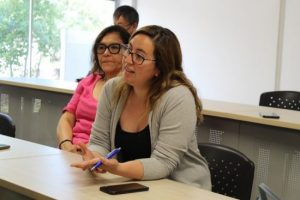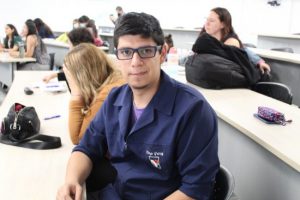Explora RM Norte trained more than 40 Kindergarten Education professionals through the PIPE program
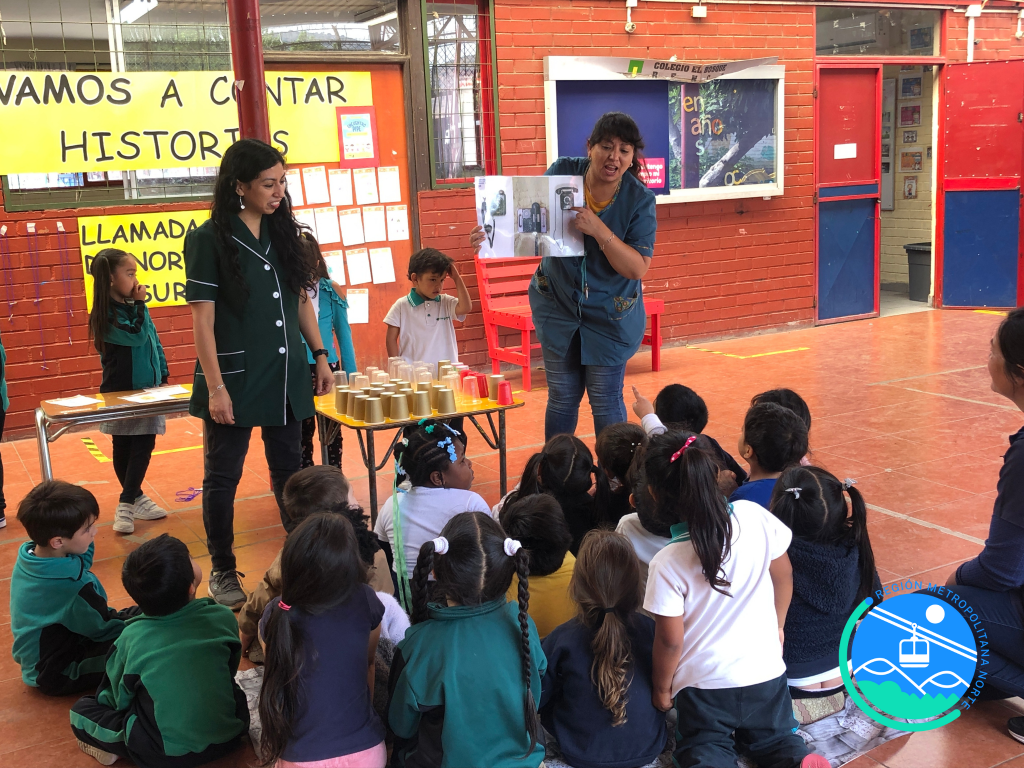
For the fourth consecutive year, the Explora Northern Metropolitan Region Project of the Ministry of Science, Technology, Knowledge and Innovation implemented the Inquiry Program for Early Ages (PIPE), whose objective is for children between 3 and 6 years of age to discover and learn about their environment, strengthening the development of their scientific competencies through inquiry-based learning experiences that enhance and channel their innate curiosity.
This year we worked in the area of technological learning, under two modules: “Let’s invent by nature” for the middle levels and “Let’s tell stories” for the transition levels. We trained 44 kindergarten teachers and education assistants and 920 children from various educational establishments in the Northern Metropolitan Region.
Between March and December of this year, training, workshops were offered in collaboration with the Inquiry-based Science Education Program (ECBI) and the Ideomaker team, collaborative co-design sessions, delivery of kits for the implementation of the activities of each learning module, classroom accompaniment and other synchronous and asynchronous activities, in order to strengthen the scientific competencies of the kindergarten education teams.
Among the technical competencies worked on are: Acting with curiosity, seeking opportunities for inquiry, discovering solution alternatives, designing research projects, executing the project, analyzing results and communicating the work done, while the transversal competencies focused on learning for innovation, learning from the process, executing critical judgment and learning with others.
To conclude the initiative, during the month of November, the certification of PIPE 2022 participants was held in person at the Faculty of Sciences, Chemistry and Pharmaceutics of the University of Chile, an instance that promoted reflection on the impact of the program on the teaching practice and on the learning and teaching processes of children. In addition, each PIPE participant was invited to carry out a small closure in their educational establishments together with the children, thus promoting the technical competence related to communicating the work carried out.
“Inclusive, interesting and dynamic”, “fun, exploratory, diverse”, “entertaining, novel, challenging” were some of the definitions of PIPE in three words, highlighted by the participants.
Educators tell us about their experience
“On behalf of my school, I am grateful for the support we had throughout the initiative. One of the activities that the children valued the most was realizing how close they were to science. For example, when we did the activity with Velcro, they were fascinated because they had Velcro on their sneakers and buttons. And that is the idea, to bring science closer to the children, starting with the everyday, because that way they will make learning much more meaningful,” commented Carolina Morales, Pinpilin Kindergarten.
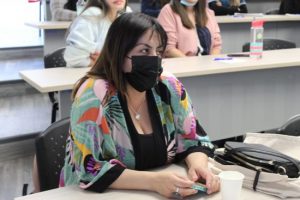
“For us it was a challenge to share PIPE with the other levels, we even implemented it in the nursery and we took some transversal competencies that we could use with the little ones, it was very useful to take certain skills and transform them. It has been very useful for us to articulate with other teachers from other levels, it was challenging, but we are happy because we achieved it” said Macarena Ossandon, educator of the Parque O’Higgins Kindergarten.
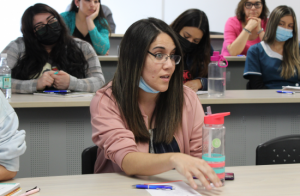
On the other hand, Meribet Ravanales from the Fernando Alessandri Rodríguez School in Santiago said that it was a great experience for her, starting from the professional point of view, significant learning for the children and for the families, “in my case, I tried to incorporate the families in the first two experiences and I had a very good reception, until the end of the activity, the children remembered what we had done at the beginning. The program also allows me to take these tools learned to other science experiences, for example, I do experiments and this allowed me to transfer this knowledge and give them another order”.
Finally, Diego Garay from the Nueva Zelandia School in Independencia, said that this is the first time he has participated in PIPE, “I am glad that everything worked out, at first I was a little scared because I did not know how I was going to receive the children, but everything went well, the materials were optimal, it met all my expectations with which I applied”.
The Explora RM Norte team congratulates and thanks the educational establishments that participated in the PIPE initiative: Santiago de Chile School, El Bosque de Renca School, New Zealand School, Colegio San Adrián, JI Pinpilin, Republic of Colombia School, JI Chamomile, JI Ignacio Carrera Pinto, JI Mead, Simón Bolívar Bicentennial School, Liceo San Francisco de Quito, Madrigal School, Fernando Alessandri Rodriguez School, JI Leonor Osorio Llantén, A Corner of Joy School, Lara School Pinta el Sol, JI O'Higgins Park, JI Copiapó, Palestine School, Escuela Antu Huilen and JI Renaciendo Sueños.
